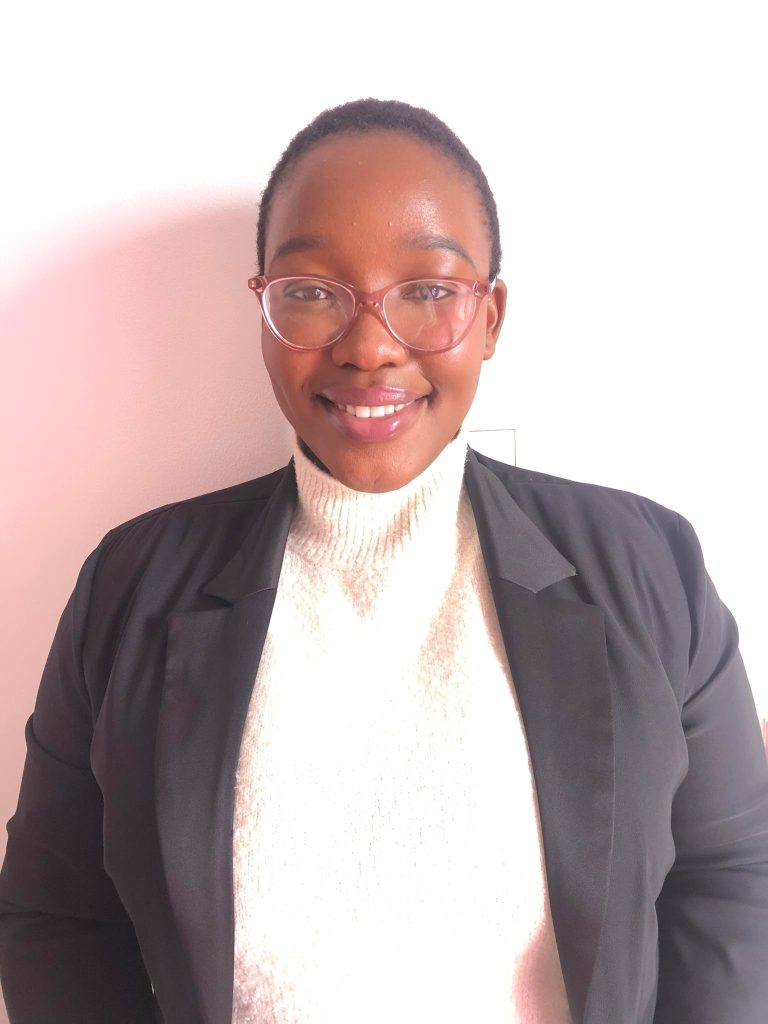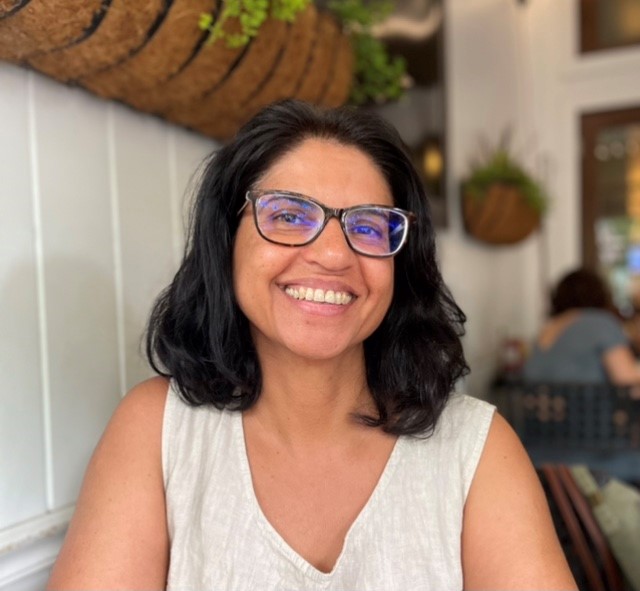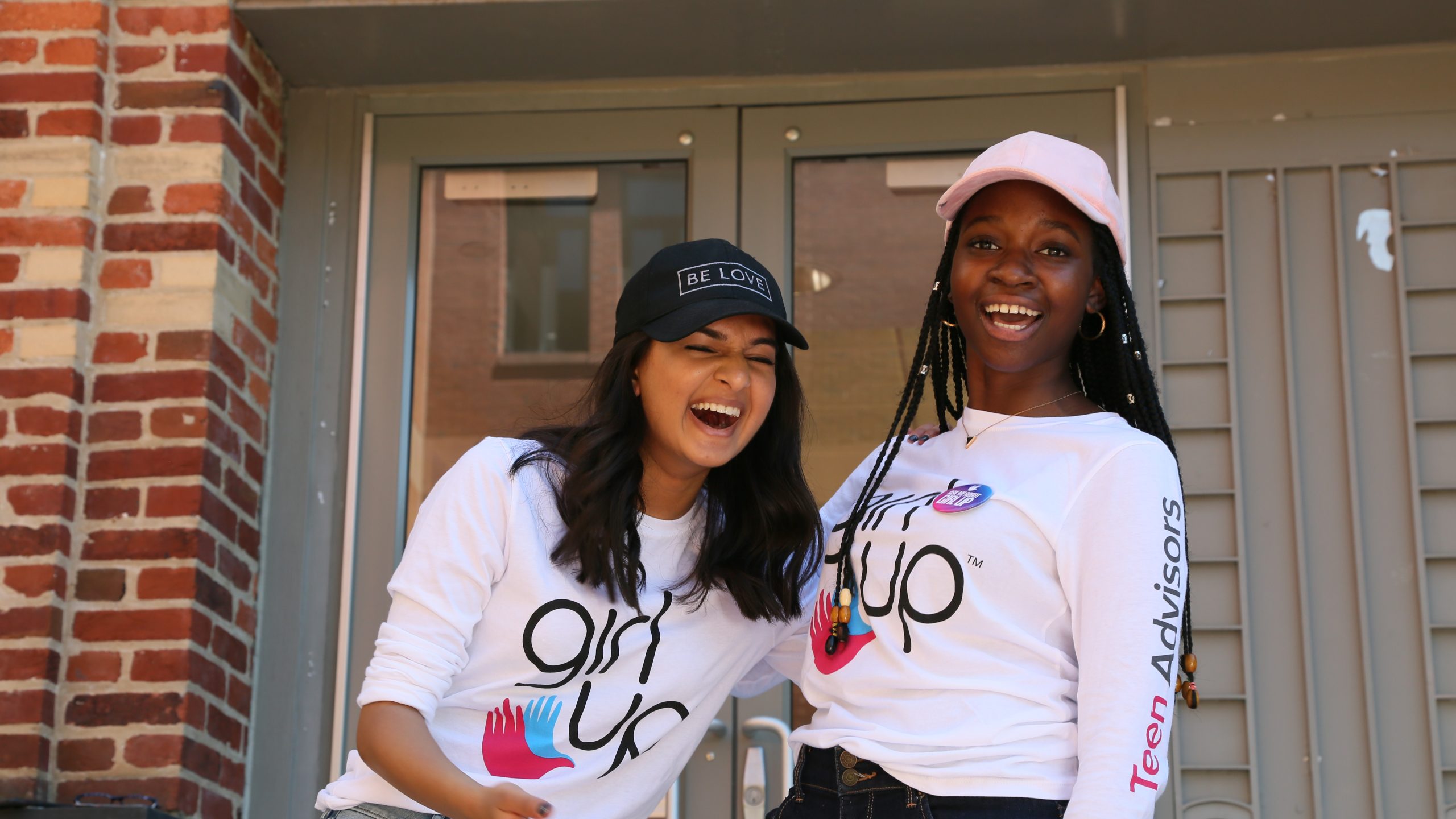Movement Matters #3
In the third edition of the Movement for Community-led Development’s monthly column, Movement Matters, Sera Bulbul dives into the essential role of young leaders in gender advocacy and the role of youth in community leadership with Anita Dywaba (Girl Up Leader, Journalist, and Human Rights Activist, South Africa) and Sia Nowrojee (Senior Director, Global Community at Girl Up).
Sera Bulbul: (To Sia Nowrojee) The Background of Girl Up – what is its creation story and how did that evolve?
Sia Nowrojee: Girl Up was founded by the United Nations Foundation as a US-based advocacy program, focused on mobilizing girls in the US to raise awareness and funds to support UN programs working with girls around the world. Over the past decade, Girl Up has evolved into a dynamic, global youth movement for gender equality, with 64% of our Clubs outside the US. Since 2010, Girl Up has engaged 150,000 girls and supported 6,000 Clubs in 130 countries. Girl Up youth members start and run their own Clubs and engage in advocacy on a range of issues related to gender equality and social justice. They connect with each other through their Clubs and Coalitions and our online Community. They lead the movement. We provide leadership training and advocacy resources, opportunities, and support.
SB: (To Anita Dywaba) How did you become involved with Girl Up?
Anita Dywaba:I became a part of the Girl Up campaign after attending the 2019 Girl Up summit. I was extremely impressed and captivated by their work and mission to promote Gender Equality, and their views aligned with my feministic views. I then started a Girl Up club in Cape Town, and then was appointed the leader of the Girl Up South African coalition.
SB: (To Both) What are the core values of Girl Up and how do they align with the ideas of community-led development?
SN: Girl Up’s core values align well with the principles guiding community-led development, both in terms of the ways in which we work and the issues that we work on. Young leaders are at the heart of our movement working to advance gender equity, close the gender gap in leadership, and mobilize communities to create social change. Our global movement is informed by their local advocacy. We foster a supportive global community of young leaders and partners and strive to create an inclusive environment that values and celebrates each member across their diverse and multiple identities. Our programs are designed to help our youth members channel their passion into action to create more just communities. We encourage our members to advocate at the local, national and global levels to advance the Sustainable Development Goals. Girl Up supports our members fighting for justice on social issues that intersect with gender equality, including systemic racism, indigenous rights, poverty, gender-based violence, access to education and healthcare, civic participation, climate change, sexual and reproductive health, rights and justice, and discrimination based on gender identity, sexual orientation, disability and more.
AD: The reason I joined Girl Up was because of their ideas around community-led development. Girl Up works through club bases, these clubs are started by young people within those communities. Girl Up clubs and coalitions are led by the young people within those communities. The core idea of community-led development is exactly that, having the people/young people of those communities lead the developmental work within their communities. This not only empowers the community itself but is also the most efficient way for community development because community members know their communal needs more than anyone else. Community members often have a better understanding of the social and cultural dynamics of those communities, enabling them to be sensitive to those complexities. Girl Up does just that, even in the different regional networks. For example, Girl Up Africa is led by young African leaders, and this works because Africans will be more knowledgeable on developmental solutions needed in the African context. Although some social problems, such as Gender Inequality will be common globally, the African experience of Gender Inequality might slightly differ from the European experience of Gender Inequality. Likewise, my experience of Gender Inequality in Cape Town South Africa will differ from that of a person living in another country. And this is why Community-led development is so crucial.
Lastly, community-led development also emphasizes the voices of groups that are usually pacified, for example, women and young people. Community-led development also ensures the inclusion of these voices in defining the problems in the community and finding appropriate solutions for them. Recognizing this, Girl Up also aims to empower young girls and women, giving them support and a platform to engage in issues that affects them and the support in finding solutions to those problems.
SB: (To Sia) What compelled Girl Up to join the Movement?
SN: Girl Up is a youth-led movement with priorities and ways of working that align well with the Movement. Like other members, we believe that by listening to those who are most affected by the issues – in our case, youth. By supporting youth and their advocacy, we are building a movement made up of the next generation of leaders and advancing gender equality across communities, nations, regions, and global issues.
SB: (To Sia) How has Girl Up been involved in the Movement so far?
SN: We have been able to ensure that youth are represented in Movement events and their voices and perspectives are heard. So far, Girl Up members have participated in Movement events on democracy and on climate change, and gender equality. Additionally, as Girl Up moves to a decentralized model of local affiliates, we continue to learn from other members of the Movement on how to create and work through intentional and equitable partnerships that leverage the relative advantages of those of us in the Global North and our partners in the Global South.
SB: To Both: What about the Movement resonates for you (personally)? Has the Movement changed your understanding of community-led development?
SN: The Movement is an important space for me as a gender equality advocate working in international development. It is a space where I have been able to connect and learn and create valuable professional and personal partnerships. International development is at a critical point as a field. Our frameworks are being questioned, power imbalances are being examined, and we are exploring new ways of working. The Movement is a space where we are collectively moving forward important intersectional conversations and exploring alternate frameworks intentionally and most importantly, through our collective commitments, optimistically!
AD: Personally, as a community worker myself, coming from a disadvantaged community, the Movement resonates with me because I have always felt frustrated with a lot of the traditional blanket approaches form of community development. The type of development where “specialists”, from different backgrounds, come into the community with prescribed problems and solutions. A lot of the time, these have resulted in a lot of insensitivity and a power imbalance. The community is often seen as powerless and is to be fed a prescribed analysis of the problem and solution. I believe the movement aims to redress that power imbalance and gives the power back to the communities as active drivers of their community’s development. Communities are seen less as victims to whom things happen, but as capable people able to solve their communal problems. The Movement has really emphasized that for me because this is something that I had already believed in quite strongly.
SB: (To Anita) What can MCLD do for young girls?
AD: I think MCLD is already doing amazing work for women and girl empowerment. The Movement’s core values recognize the disenfranchisement of women and girls and aim to empower their voices. I think that MCLD should continue that work. I think it would be really interesting to have some research produced or led entirely by young girls within the communities in which MCLD works. This would give young girls a bit more ownership of their stories and how they envision development in their communities to be. I think this would be such a powerful and empowering initiative. Also having a platform solely for equipping and supporting young girls with conducting research in their communities and coming up with solutions. Even some young-women-centered hacks and labs, where there would be a repository of work produced just by young girls could be a really amazing initiative.
SB: (To Sia) What is one piece of advice or guidance you would give an organization starting its journey to intentionally shift power?
SN: Remember that people are at the heart of the work that we do, so I believe it is important to pay close attention to partnerships. Who you are connecting with, how you are working together, and who has decision-making power and control over resources are important questions to consider and revisit as you design and implement your programs and seek to intentionally shift power. International and community development can learn from feminist movements and organizations about how to center and value relationships and partnerships.
AD: What about advice to a person starting their own mindset shift? I believe that it is crucial that you always keep an open mind. Always be willing to learn. Especially if you are in a position of power, always be aware and sensitive to those social power imbalances. Additionally, the process might take some time, it is not easy to acknowledge and correct faults, especially when they have been normalized by society. Being able to change your mind and continuously learn things about the world is a true sign of personal development.
SB: Could you tell me about a time that Girl Up used community-led development in practice? Perhaps an example of mobilizing for change in a community?
SN: Every day, Girl Up members are making changes in their communities, bringing the strength of a global movement to key local and national issues and conversely, strengthening our global movement. For example, through their Free to Menstruate/Livre Para Menstruar campaign, members of Girl Up Brasil successfully lobbied for menstrual equity. They were successful at getting 40 proposed bills passed at the city and local level, nine proposed bills passed at the state level, and finally a federal bill on menstrual equity. It was vetoed by President Bolsonaro, but the campaign continued and had its major victory, when the federal bill finally became law, with President Bolsonaro’s veto being overturned by Congress. The law will ensure that girls across Brazil have access to menstrual hygiene management supplies and facilities so that they can attend school and access other important opportunities. Many Girl Up clubs around the world are advocating for menstrual equity and can use the strategies and tools from their fellow gender equality advocates in Brazil.
AD: As mentioned above, Girl Up clubs and coalitions are excellent practical examples of community-led development. Young people start up clubs in their own communities, to address Gender Inequality in their respective communities. For example, just recently Girl Up Zimbabwe mobilized dozens of young girls to talk about Gender-Based Violence and how girls can identify abuse and violation. They also distributed their Guide to Sexual Reproductive Health and Rights. This is an initiative driven by young Zimbabwean women through their Girl Up Club. They have identified the problem in their community, came up with solutions to address the problem, and mobilized their community to further advocate for gender equality.
Cover Photo: Girl Up

Anita Dywaba is a 23-year-old qualified journalist and human rights activist, now working in the development field. Anita currently works as an Innovation Analyst at the United Nations Population Fund (UNFPA) as part of their Young Innovators program. Anita is leading the first Girl Up coalition in South Africa and co-founder of nkwenkwezinpo, a non-profit focusing on SDGs 4 and 5. Anita was also recently elected as a United Nations Foundation’s Next Generation Leader, working on Gender Equality issues.
One of her most outstanding achievements was when she spoke at a side event of the first-ever Summit For Democracy hosted by the President of the United States. At the event, she spoke about how voting in local elections is essential for sustaining local democracies and economies and why positive civic engagement, especially amongst youth voters, is crucial. Another highlight for Anita was when she executive produced a current affairs show called Politics Today for the Rhodes University TV (RUTV) Channel, which highlighted the rise in political apathy in the youth; using her media skills as an activism tool.
Anita has spoken on various panels in Youth Summits, including the 2021 and 2022 GirlUp Leadership Summit. Anita describes herself as an avid campaigner and researcher, having worked on various international campaigns including with USAID’s YouthLead project on the importance of female representation in peacebuilding, as well as working on a youth research paper with the APRM project.

Sia Nowrojee is the Senior Director, Girls & Women Strategy at the United Nations Foundation. She has over 30 years of experience in international and community development, including strategic leadership, program management, advocacy, institutional strengthening and capacity building, training, movement building, and strategic communications. Sia’s experience spans a range of issues, including gender equality, sexual and reproductive health and rights, HIV/AIDS, education, pluralism and good governance, and localization. Prior to joining the Girls & Women team, Sia served as Senior Director, Global Community at Girl Up, United Nations Foundation, a global leadership development initiative transforming a generation of girls to be a force for gender equality and social justice. Earlier, Sia served as the Executive Director of the 3D Program for Girls and Women, as a Senior Gender Consultant with UNICEF, and as Senior Technical Writer and Editor with the Aga Khan Development Network. Sia served as the co-chair of the Learning Working Group of the Movement for Community-Led Development and is a 2020 Fellow with WomenLift Health, a women’s leadership program. A dual citizen of Kenya and the US, Sia has a Master of Social Services (Clinical) and a Bachelor of Arts in Sociology (Honors) from Bryn Mawr College.


